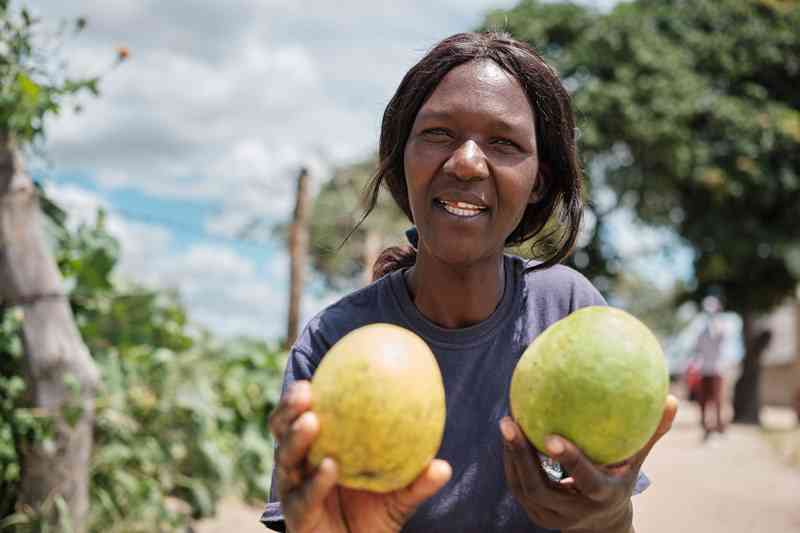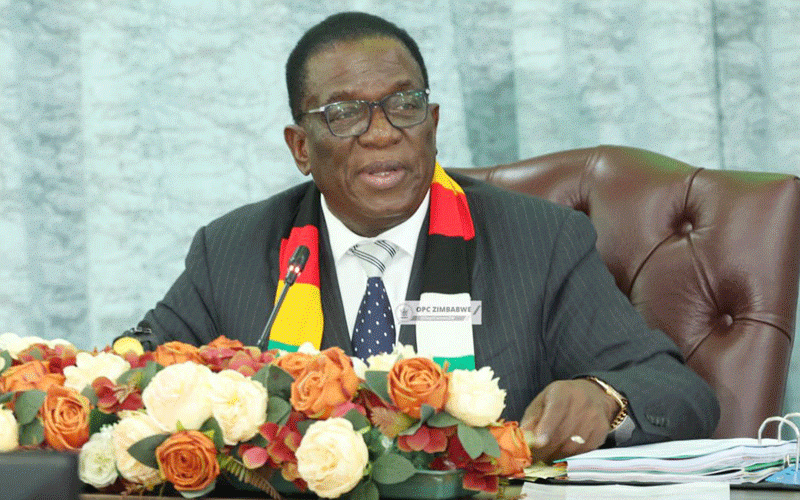
“We no longer waste time sitting at home or squabbling with our husbands,” boasted Eupria Nyadome.
“Most of our time is now spent working together as women and discussing strategies on how to improve as mango farmers and how to generate more income from our mango business.”
Nyadome (35) from Mhondiwa village in Murewa district of Mashonaland East, is one of over 800 Zimbabwean farmers (542 women and 339 men), who have received training in integrated pest management (IPM) techniques developed by researchers at the International Centre of Insect Physiology and Ecology (Icipe) in Kenya.
Launched in 2019, the Alien Invasive Fruit Flies in Southern Africa project has been implemented in Malawi, Mozambique, Zambia and Zimbabwe where mango farming is an important source of nutrition and employment.
In Zimbabwe, the project was implemented in Murewa, Mutoko and Zvimba districts. The project is funded by the International Development Research Centre and the Australian Centre for Agricultural Research.
Prior to the start of the project, poor management of mango trees often resulted in the production of few and small fruits, which were heavily infested by fruit flies.
Fruit fly mango infestations reduce the quality and quantity produced for both local and foreign markets: Up to 80% of mangoes were lost to fruit flies and synthetic pesticides have been largely ineffective in controlling these insects.
However, by adopting IPM techniques, fruit farmers’ incomes are increasing.
- Mnangagwa in secret visit to Marange
- Global agency downgrades Zimbabwe’s growth projections
- Decomposed body of Taguta laid to rest
- Selmor keeps Mtukudzi’s legacy alive
Keep Reading
Nyadome, a mother of four girls and two boys, says that mango farming is something she and her family has been involved in over the years, but it wasn’t until 2021 that her approach completely changed.
She learned about fruit flies and how to control them using IPM packages that are friendly to both human and environmental health.
“We learned about fruit flies and we were given traps, lures and advised to sweep our orchards and pick up rotten mangoes and bury them underground.
“This helped us because our harvest improved due to the control of the pest, which was affecting our mango fruits.”
Through working with the project, the farmers have also embraced value addition through mango drying and preservation which has significantly improved their income generation.
“One of our group members has contacts in Canada where her husband works,” Nyadome added.
“The contacts bought our dried mangoes through her and this gave us much more money than what we were making through fresh mangoes.
“We received US$170 for a bucket of dried mangoes abroad, compared to US$5 or US$6 from selling fresh mangoes locally.
“I managed to pay school fees for one of my children who was in form four and I kept some money aside so that I could pay for her O’ Level examinations as well. So, it is really helping us.”
Through proceeds from exporting dried mangoes in 2022, Nyadome and her fellow mango farmers, working under the guidance of an agricultural extension officer, teamed up and set up village savings banks where they each contribute US$10 fortnightly.
The money is then loaned out for a small interest to villagers in need of cash.
“Our lead farmer, Mai Mhondiwa, bought herself a gas stove and has now learned to bake scones for sale. We all are inspired and grateful for growth as young mango farmers and we wish to reach her level,” she said.
According to Zimtrade, in 2021, Zimbabwe exported 25,6 tonnes of mangoes worth US$4,537, the highest amount since 2011 when US$12,122 worth of exports were recorded.
Zambia receives 43% of Zimbabwean mango exports, while South Africa 35% and Mozambique 11%.









